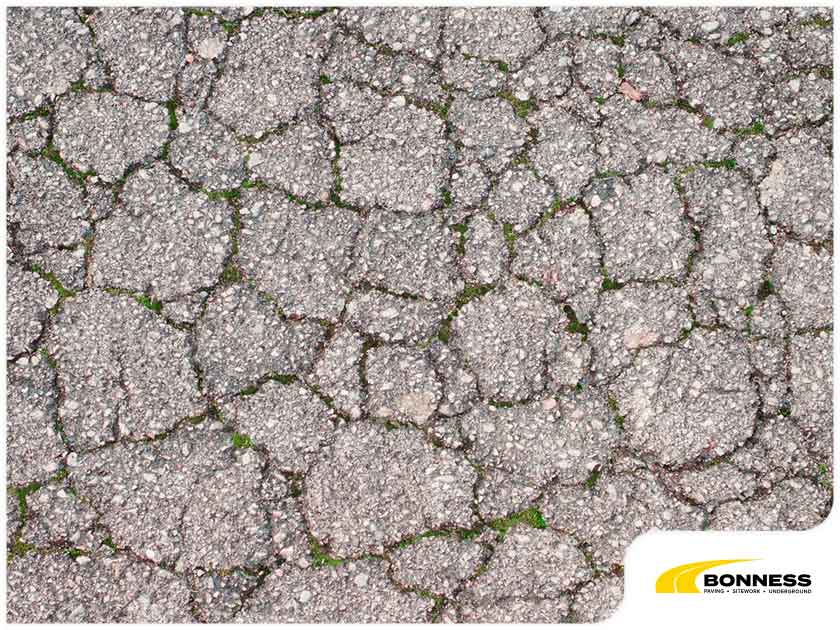
Asphalt is a durable and sustainable material for pavement construction and can be used in many applications, such as parking lots, driveways and highways. Asphalt pavements are designed to handle heavy loads and can withstand a lot of wear and tear. However, there are several installation or repair mistakes that can contribute to its premature deterioration.
- Alligator cracks: This is the most prevalent form of asphalt damage. It pertains to a widespread cracking that mimics the skin of an alligator. This structural failure is often caused by incorrect installation of the asphalt surface, chronic excessive loads or poor drainage. With this type of cracking, a full-depth patch is required to repair it. This will restore the strength and integrity of the asphalt and prevent localized cracking in the future.
- Raveling: This refers to the ongoing separation of aggregate materials, such as crushed stone, sand and gravel, in a pavement. It makes the asphalt surface look rough and reduces skid resistance. Placing asphalt too late in the season is one of the leading causes of raveling. Since it mainly affects the surface, driveway contractors say that applying a thin hot-mix overlay can resolve the problem.
- Slippage cracks: These are crescent-shaped tears in the asphalt surface. It is commonly caused by a lack of proper bonding between layers of asphalt. In most cases, a tack coat was not used to develop a bond between layers, or a prime coat was not applied to attach the asphalt to the stone base course underneath. All areas that exhibit slippage cracking should be removed and repaired with a partial or full-depth patch.
Bonness is the premier contractor of curb and sidewalk installations, full site development, paving, underground facilities and more in Southwest Florida. Call us at (239) 597-6221, or fill out our convenient online form to request a free no-obligation estimate.
